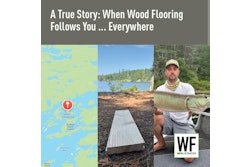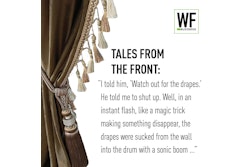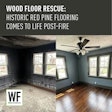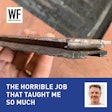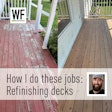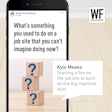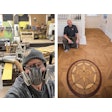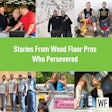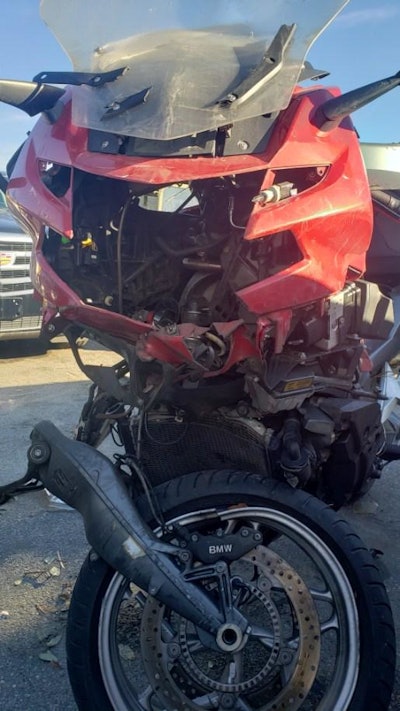
I am self-employed like many of you are, and those who know me are aware that I was in a serious traffic accident last year. I don’t even remember my accident. I woke up three weeks later bound to my bed and irate that I couldn’t go home. I had no idea of the totality of what happened to me, even as I struggled to get free. I was connected to tubes, wires, and all kinds of beeping diagnostic equipment, and was told I “was a handful” for the nurses to handle. Once the drugs wore off, I apologized to as many nurses and staff as I could for my behavior.
I’m writing this article because that was totally the wrong time to prepare for the unexpected. One moment I was a business owner riding my bike on a warm, sunny day, and the next moment I awoke (three weeks later) as if I had blinked from one moment to another, and my business had come to a standstill the moment I crashed.
I was in the hospital for three months. Now that I’m home, I am still healing and cannot do much as I did before. The first week of my “journey” began in the ICU, with the doctors telling my family “we don’t know” when asked about my status. I certainly have come a long way since then. I had to re-learn how to walk again, and I can’t tell you how liberating that feeling is, although painful and very slow. The stuff we take for granted is amazing, and I have a new respect for the little things in my life (all the more the desire to protect those little things—more on that soon).
I’m the owner of my company, and I LIKE to work. I was an integral part of refinishing, installing and whatever else I was hired to do, because I really enjoy the physical part of this trade. Without me, my whole company instantly stopped in its tracks. (Luckily, I had no open contracts, but I did find one open invoice from a supplier two days ago that is now five months old. I called them up and asked, “Do I show a balance on the account?” and the credit manager said, “Yes, but we heard what happened and we know you, so we turned off the alerts until you got better.” Wow, what a nice gift to find in all of this. I asked her to note that I had called, and I made a payment promise on the spot.)
I know this is a wood flooring magazine, but I have gleaned some significant knowledge since my accident—things I wish I knew before. I did not make any mistakes to get me here, but I realize now that I had no idea of the choices I could have made before the accident to mitigate and ease what I went through.
I got the idea of how to start this article from my appreciation of Stevie Ray Vaughan. When he passed away, I was shocked and upset. Like everyone, I didn’t think it was fair or conceivable that someone of his stature could be taken in the prime of life. I grieve not only for him, but for all the music we lost that he had not composed yet. I am no Stevie Ray Vaughan, but, like him, I had people who depended on me and I was taken out of the game (and almost lost everything entirely). The day he passed, his bandmates were suddenly unemployed. The roadies, too, along with all the supporting recording staff and administrative personnel who took care of Stevie, from the studio to the film shoots to the stadiums. It was a grievous loss that affected perhaps hundreds of people connected to his career.
Most of us are just like him in that we are captains of our little empires. Some of us have employees and some do not, but we have families who depend on us. What would happen to them if something grievous happens to you?
Some of us drive motorcycles, some of us skydive, some of us hunt, some of us bounce at night clubs, some of use machines that cut, some of us connect high-tension wires to the fuse box, etc. Any of the aforementioned items can change our lives in an instant, yet for my part, I never gave it one second’s thought—ever. I was going to live forever and grow to be a zippy old man that would flirt with girls and have all kinds of words of wisdom to give to anyone who asked. I thought I was careful enough to avoid high-risk pitfalls everywhere I went, and in everything that I did.
But now I know better.
Since I was allowed to begin to learn to walk, I was discharged and allowed to go home. Once home, you’d think everything would be better, but nope. Every day is a struggle, and daily I fight to expand my boundaries of physical limitations. So far I’m winning, but it is slow. I’m going to detail some of the things I’ve discovered since I woke up after my accident and hope they are helpful for all of you. God forbid anything happen to you, but if it did, knowing what systems are in place to help restore you to your rightful place is, to say the least, “important” for all of us.
1) Disability claims are not a given and depend on your state.
First, I filed a disability claim and was promptly denied (??!!). I found out a thing or two about disability, and here in California that “right” you think you have is manifested by endless ribbons of red tape that quickly ends with a denial, because California demands an extra consideration of self-employed persons. It’s a separate policy I never knew about called Disability Insurance Elective Coverage. States control how disability rolls out, and apparently it is different from one state to another. New York State, for example, has a policy that if a person pays into Social Security, they have disability as a matter of course. It’s exactly the opposite here in California.
2) You should know how your state ranks for disability claims.
The best State for filing a disability claim is Kansas.
- Kansas offers the highest chance of being approved for social security disability.
- Its SSDI (Social Security Disability Insurance) approval rate was 69.7% in 2020.
- The average monthly benefit for SSDI beneficiaries is $1,228.
The worst State for filing a disability claim is Oklahoma.
- Oklahoma is the hardest state to get approved for social security disability.
- This state has an SSDI approval rate of only 33.4% in 2020.
- The average monthly benefit for SSDI beneficiaries is $1,200.
My point in bringing this to print is to help you avoid losing the chance to take advantage of something that may help if you are now living a life full—like I did.
In the big picture, I “won” because I’m going to be OK. I missed out on a chunk of disability cash that could’ve helped my family manage my loss, but now I am all the smarter for it because I can simply enroll for the proper plan in my state. No work for four months will rewrite anyone’s life, and luckily the small size of my empire helped to overcome the big bummers that others may not avoid.
In Part 2 of this post, I’m going to share what I learned about life insurance, considering risk and vehicle insurance.
See all of Angelo DeSanto's popular blog posts and magazine articles here.
















